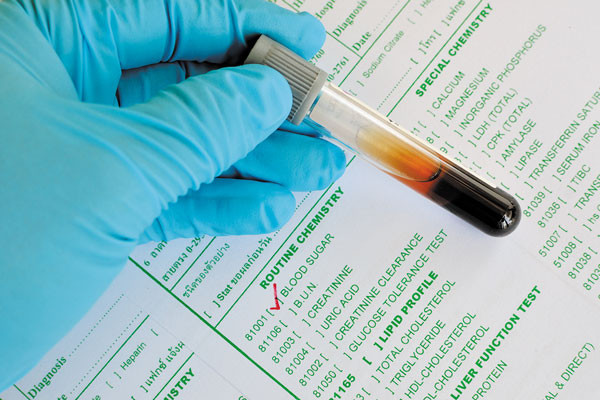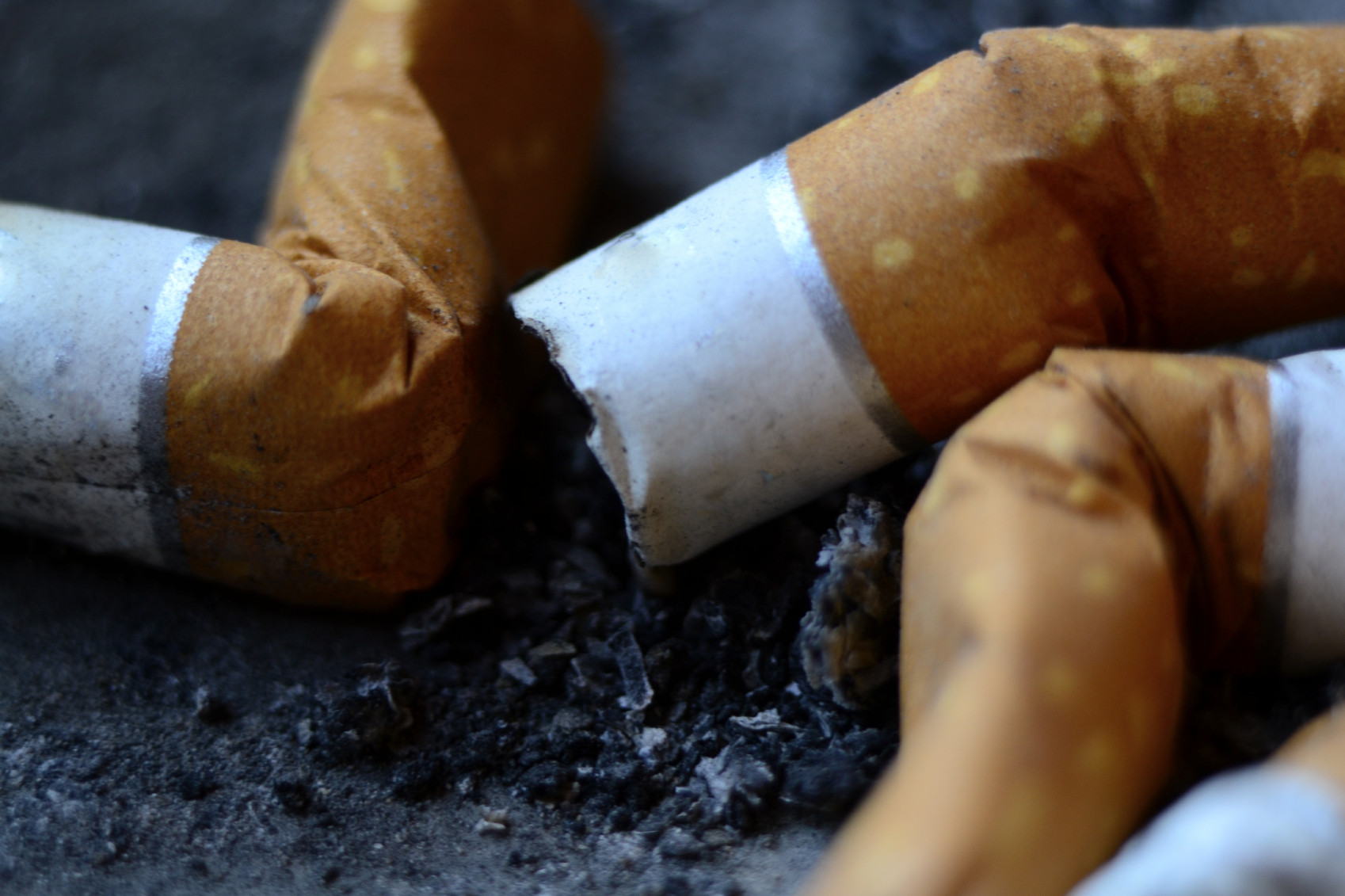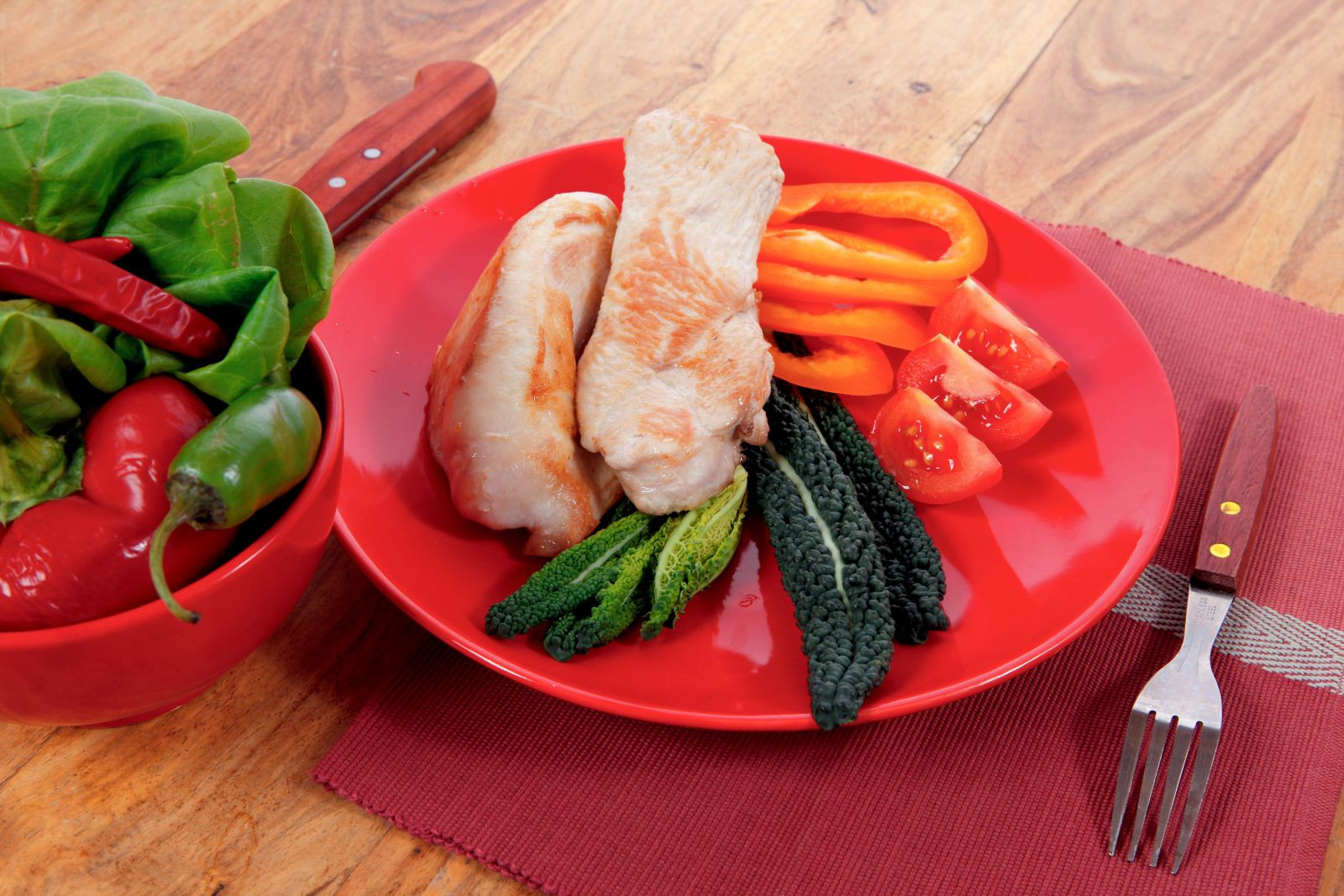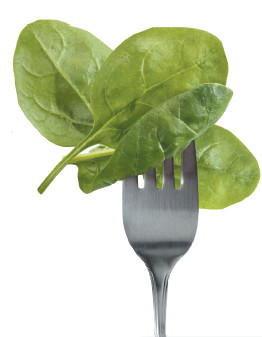
Respiratory health harms often follow flooding: Taking these steps can help

Tips to leverage neuroplasticity to maintain cognitive fitness as you age

Can white noise really help you sleep better?

Celiac disease: Exploring four myths

What is prostatitis and how is it treated?

What is Cushing syndrome?

Exercises to relieve joint pain

Think your child has ADHD? What your pediatrician can do

Foam roller: Could you benefit from this massage tool?

Stepping up activity if winter slowed you down
Diet & Weight Loss Archive
Articles
Which fruits and vegetables are best for weight loss?
Image: Thinkstock
Research we're watching
Eating more fruits and vegetables can help you control your weight, but the type of produce you choose may make a difference, a new study finds.
Researchers tracked nearly 118,000 people in their 30s and 40s, collecting information about their eating habits every four years for 24 years. They found that over a four-year period, people who ate an extra daily serving of fruit shed about a half pound of weight, while those who ate an extra daily serving of vegetables lost a quarter-pound, on average.
Ask the doctor: Are diet drinks safe?
Image: Thinkstock |
Q. I've been drinking Fresca since I was in college. Lately I've been reading that diet drinks may cause weight gain and have other bad effects. Is that true?
A. There is some controversy about whether drinking diet soda helps or hurts in maintaining or achieving a healthy weight. Some studies show that people who consume artificially sweetened drinks take in fewer calories and are better able to control their weight. However, other studies show the opposite—that consuming diet drinks may result in weight gain as well as type 2 diabetes.
The balancing act: A guide to heart-friendly holiday eating
Making smart eating choices can help you enjoy your favorite holiday foods in a heart-healthy way. |
Planning ahead can help you navigate the hazards of holiday overindulgence.
Should postmenopausal women boost their aerobic exercise time?
Among 400 postmenopausal women who were previously inactive, those who did 300 minutes per week of moderate or high intensity exercise had more success at reducing total fat after one year than those who exercised for 150 minutes per week.
Rising blood sugar: How to turn it around
| Image: Thinkstock |
Rising blood sugar signals a need for weight loss and more exercise.
Whenever you have routine blood tests at a physical exam, chances are one of the numbers will be a measurement of your glucose, or blood sugar. A normal blood sugar level is less than 100 milligrams per deciliter of blood (mg/dL) after an eight-hour fast. You have diabetes if your blood sugar is 126 mg/dL or higher. But between those two numbers lie many opportunities for action.
Quitting smoking doesn’t have to mean big weight gain
Weight gain might be one of the most dreaded “side effects” of quitting smoking. Constant reminders of the health dangers of being overweight lead some smokers to think that smoking is “safer” than the weight they might gain if they quit. But that’s just not the case. It’s true that people tend to gain 5-10 pounds in the first six months after they stop smoking. But a recent study suggested that for those who quit, weight gain slows down over the following 10 years after quitting. Over that same time period, people who continued to smoke also gained some weight, though not as much. Over all, kicking the habit doesn’t have to mean a larger waistline, especially if you plan ahead.
DASH or Mediterranean: Which diet is better for you?
Both eating plans have proven health benefits. Deciding which to follow depends on your goals and preferences.
The DASH diet has been named the best diet in the United States by U.S. News and World Report. However, the U.S. government panel writing the 2015 Dietary Guidelines for Americans cited the Mediterranean diet as an example of how we should eat. If you're trying to choose the best eating plan to lower your health risks, which one should it be?
Study gives new insights into obesity and breast cancer
An analysis from the Women's Health Initiative (WHI) suggests not only that postmenopausal women who are overweight or obese have a higher risk of invasive breast cancer than women of normal weight but also that the excess risk increases as a woman's weight rises beyond obesity. The results were published online June 11, 2015, by JAMA Oncology.
A team of investigators from several medical centers studied data on 67,000 postmenopausal women who enrolled in the WHI between 1993 and 1998. They were followed for a median of 13 years. During that time, 3,388 invasive breast cancers were detected. The researchers analyzed the distribution of breast cancer among weight classes and calculated the risks for women who were overweight (body mass index, or BMI, of 25 to 30), obese (BMI 30 to 35), or very obese (BMI over 35) compared with women of normal weight (BMI 25 or less). They found that the increased risk of developing breast cancer ranged from 17% in women who were overweight to 59% in those with a BMI over 35. Among women who began the study at a normal weight, those who gained at least 5% of their original weight had a 12% higher risk of developing breast cancer than those who maintained their original weight. Neither losing weight nor using hormone therapy had a significant effect on risk for women of any weight.
Snacks: Quality vs. frequency
When it comes to snacking, is what you eat more important than how often you snack? A study published in the July 2015 Journal of the Academy of Nutrition and Dietetics tracked the snacking habits and foods of more than 200 people (average age 42). After two-and-a-half years, researchers observed that people who snacked on fruits and vegetables had, on average, a lower body mass index (BMI) than people who snacked on desserts and sweets. BMI is a measure of body fat based on a person's height and weight. Calories, frequency of snacking, and the time of day snacks were eaten didn't seem to affect BMI.
The study didn't show that the quality of snacks people ate was responsible for the lower BMI. However, researchers say the findings support the idea that wise snack choices can contribute to a healthy diet, and that snacking isn't necessarily unhealthy unless you choose empty calories such as chips, desserts, and sugar-sweetened drinks. Kathy McManus, director of the Department of Nutrition at Harvard-affiliated Brigham and Women's Hospital, underscores the importance of that approach: "Timing or frequency is not as important, as long as healthy snacks are selected." She recommends nuts such as almonds, peanuts, pistachios, or hazelnuts; hummus with baby carrots; peanut butter with celery or an apple; part-skim string cheese with a small bunch of grapes; or plain nonfat Greek yogurt with blueberries.
Add more nutrient-dense foods to your diet
Foods such as kale, cantaloupe, and quinoa can boost the amount of nutrients you consume without increasing calories.
Getting enough nutrients through diet is challenging as we age. Our bodies don't absorb nutrients as well as they once did, yet we tend to need fewer calories and eat less. So it's important to make the most out of the foods we do eat. One way is by choosing more nutrient-dense foods, which provide more nutrition bang for the calorie buck. "They contain an abundance of nutrients and other healthful substances—vitamins and minerals, fiber, lean protein, and unsaturated fats—but are not excessive in calories. This is compared with foods of low nutrient density that are high in calories," says Liz Moore, a registered dietitian at Harvard-affiliated Beth Israel Deaconess Medical Center.

Respiratory health harms often follow flooding: Taking these steps can help

Tips to leverage neuroplasticity to maintain cognitive fitness as you age

Can white noise really help you sleep better?

Celiac disease: Exploring four myths

What is prostatitis and how is it treated?

What is Cushing syndrome?

Exercises to relieve joint pain

Think your child has ADHD? What your pediatrician can do

Foam roller: Could you benefit from this massage tool?

Stepping up activity if winter slowed you down
Free Healthbeat Signup
Get the latest in health news delivered to your inbox!
Sign Up











